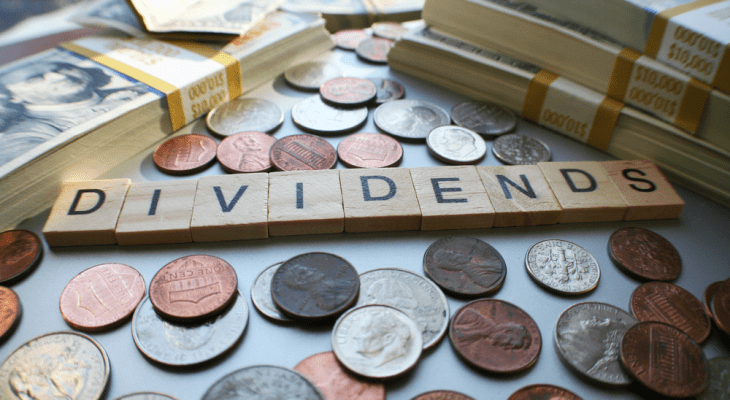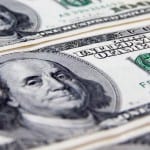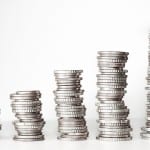5 Dividend-Paying Funds Fueled by Fed’s COVID-19 Policies
By: Paul Dykewicz,

Five dividend-paying funds fueled by the Fed’s COVID-19 policies have been climbing and showing stability while the stock market has faced massive volatility.
The five dividend-paying funds fueled by the Fed’s policies have given conservative investors a place to invest by accepting additional risk in exchange for a good chance to attain far higher returns than the anemic interest rates offered to depositors by federally insured bank accounts. With these five dividend-paying funds aided by the Fed, investors have been rewarded lately by choosing the combination of safety and heightened income rather than the rollercoaster ride of the stock market.
Three of the five dividend-paying funds lifted by the Fed’s COVID-19 policies are recommended by Bob Carlson, leader of the Retirement Watch advisory service. He also is chairman of the Board of Trustees of Virginia’s Fairfax County Employees’ Retirement System with more than $4 billion in assets.
Pension Fund Chairman Likes Dividend-Paying Funds Fueled by Fed’s COVID-19 Policies
During the early days of the stock market crash in March, Carlson championed credit and bonds investments instead of stocks. In the March 19 issue of his weekly Retirement Watch update, he noted that there was a liquidity crisis that brought prices of assets, especially closed-end funds, to distressed levels. Carlson further predicted that the liquidity crisis would be temporary and would be resolved by government action.
He cautioned about the risk of a stock market crash in my Jan. 28 investment column. In my Feb. 26 column about how to protect against a stock market crash just two days before it plunged, Carlson advised that investors seeking heightened returns should consider closed-end funds offered by the Cohen & Steers investment firm that use leverage to increase yield and potential profitability.
Those closed-end funds often sell at a discount, so investors can buy them at less than their market price, Carlson continued. An actively managed closed-end fund that Carlson recommended in his advisory service is Cohen & Steers Infrastructure (NYSE:UTF).

Chart courtesy of www.StockCharts.com
The fund’s share price dipped 1.44% during the past month and 14.95% for the past year but is up an average of 2.63% annually for the past three years, 5.55% for the last five years and 12.47% for the past 10 years. The discount to net asset value fluctuated considerably the last few months but recently traded at a 3.63% discount to its net asset value (NAV).
UTF Ranks Among the 5 Dividend-Paying Funds Fueled by Fed’s COVID-19 Policies
The fund’s management aggressively reduced its exposure to the hardest-hit infrastructure sectors and holdings in businesses with more reliable cash flow that are more recession-resistant, Carlson said. In addition, the UTF managers are increasing holdings of companies with larger capitalizations and strong balance sheets, he added.
The fund is selectively adding positions in battered energy services, such as storage tank and pipeline firms. Top sectors in the fund recently were electric utilities, cell tower companies and energy services. Those three sectors are more than half the fund.
Preferred stocks and bonds make up about 16% of the fund. Top holdings in the fund were NextEra Energy (NYSE:NEE), Crown Castle International (NYSE:CCI), American Tower (NYSE:AMT), Duke Energy (NYSE:DUK) and TC Energy (NYSE:TRP).

Pension fund Chairman Bob Carlson answers questions from Paul Dykewicz during an interview before social distancing became the norm after the outbreak of COVID-19.
Preferred securities provide several benefits, including higher yield than stocks and investment-grade bonds, Carlson counseled. Preferred shares also yield considerably more than treasury bonds and certificates of deposit, as well as offer tax advantages that provide shareholders with an after-tax yield benefit.
Preferred shares further tend to be more stable than most high-yielding alternatives, but their values fluctuate with both interest rates and economic growth expectations, Carlson continued. In contrast to high-yield bond issuers, preferred securities issuers tend to use less leverage, be in less cyclical businesses and have higher credit ratings, he added.
A big plus is that businesses that issue preferred securities tend to have strong balance sheets and fairly reliable cash flow, Carlson said. Most preferred issuers come from banks and insurers. Real estate and utility companies also are among the issuers of preferred shares.
LDP and CPXCX Join the Dividend-Paying Funds Fueled by Fed’s COVID-19 Policies
Another fund that Carlson likes is Cohen & Steers Limited Duration Preferred (NYSE:LDP). Since hitting its recent low on March 18, LDP recovered from $13.77 to $21.42.
LDP is a closed-end fund that has about a 30% leverage ratio with a recent peak price of $23.63, before including monthly distributions of $0.156 per share. LDP rose 0.38% for the past month, dipped 3.60% for the last year but climbed an annualized 1.26% for the past three years and 5.98% for the last five years.

Chart courtesy of www.StockCharts.com
A more conservative fund is Cohen & Steers Preferreds Securities & Income (NYSE:CPXCX), Carlson said. That fund offers a current yield of 4.8%, while rising 0.25% in the past month and 0.13% in the past year. On an annualized basis, CPXCX rose 3.48% in the past three years and 6.76% for the last 10 years.
Both LDP and CPXCX can buy preferred-type securities issued by companies based anywhere in the world, Carlson said. The funds adjust their holdings according to the managers’ evaluation of companies instead of having to buy low-quality securities that happen to be in an index.
Both LDP and CPXCX have reduced their exposure to European issuers and focused on issuers that are the most likely to maintain distributions in a challenging economic environment, Carlson said. Both are better choices than most stocks right now, he added.
Market-Timer Chooses 2 of 5 Dividend-Paying Funds Fueled by Fed’s COVID-19 Policies
Two favorite dividend-paying funds of Jim Woods, who leads the market-timing Successful Investing advisory service, are the iShares iBoxx $ Investment Grade Corporate Bond ETF (NYSEArca:LQD) and the iShares National Muni Bond ETF (NYSEArca:MUB). LQD offers a current dividend yield of 3.20%, while MUB yields of 2.39%. He recommended both funds on March 27, after his proprietary market-timing indicator showed on Feb. 27 that it was time to move out of stocks.

Chart courtesy of www.StockCharts.com

Chart courtesy of www.StockCharts.com
Lift for LQD that Woods said should sustain the fund’s ascent for the next several months came from the Federal Reserve’s May 12 announcement that it would begin to buy ETFs via a “Secondary Market Corporate Credit Facility.” That move would entail the Fed using about $37 billion to buy corporate bonds and corporate bond ETFs, he added.
The announcement of that program, combined with vast quantitative easing (QE), succeeded in unlocking the debt markets in March, followed by a recovery of corporate bonds. It is a reminder of the Wall Street maxim not to fight the Fed, said Woods, who also heads the premium Bullseye Stock Trader advisory service that recommends options that offer higher and faster potential returns with additional risk.

Paul Dykewicz meets with and interviews Jim Woods in Washington, D.C., before social distancing.
The Fed’s announcement of its commitment to purchase municipal bonds enhanced the prospect of investing in MUB, Woods said. The fund has risen significantly in the last month, he added.
For income-oriented investors, these five dividend-paying funds provide alternatives to the vagaries of the stock market. They also have offered a bit of share-price appreciation that should help boost their appeal to prospective investors.







 Connect with Paul Dykewicz
Connect with Paul Dykewicz




